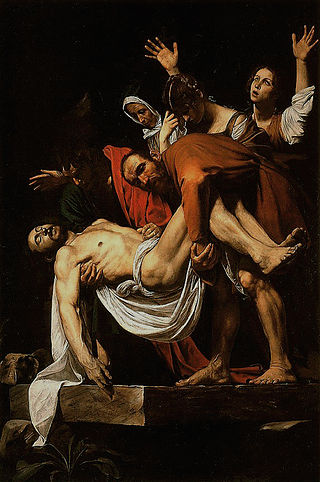Related Research Articles
George Albert Wells was an English scholar who served as Professor of German at Birkbeck, University of London. After writing books about famous European intellectuals, such as Johann Gottfried Herder and Franz Grillparzer, he turned to the study of the historicity of Jesus, starting with his book The Jesus of the Early Christians in 1971. He is best known as an advocate of the thesis that Jesus is essentially a mythical rather than a historical figure, a theory that was pioneered by German biblical scholars such as Bruno Bauer and Arthur Drews.
Earl J. Doherty is a Canadian author of The Jesus Puzzle (1999), Challenging the Verdict (2001), and Jesus: Neither God Nor Man (2009). Doherty argues for a version of the Christ myth theory, the thesis that Jesus did not exist as a historical figure. Doherty says that Paul thought of Jesus as a spiritual being executed in a spiritual realm.
The historicity of Jesus is the question of whether or not Jesus of Nazareth historically existed. The question of historicity was generally settled in scholarship in the early 20th century, and the idea that Jesus was a mythical figure still is and has been considered a fringe theory in academic scholarship for more than two centuries, but has gained popular attention in recent decades due to the growth of the internet.

The Christ myth theory, also known as the Jesus myth theory, Jesus mythicism, or the Jesus ahistoricity theory, is the view that the story of Jesus is a work of mythology with no historical substantiality. Alternatively, in terms given by Bart Ehrman paraphrasing Earl Doherty, it is the view that "the historical Jesus did not exist. Or if he did, he had virtually nothing to do with the founding of Christianity."

The stolen body hypothesis posits that the body of Jesus Christ was stolen from his burial place. His tomb was found empty not because he was resurrected, but because the body had been hidden somewhere else by the apostles or unknown persons. Both the stolen body hypothesis and the debate over it presume the basic historicity of the gospel accounts of the tomb discovery. The stolen body hypothesis finds the idea that the body was not in the tomb plausible – such a claim could be checked if early Christians made it – but considers it more likely that early Christians had been misled into believing the resurrection by the theft of Jesus's body.

The Jesus Mysteries: Was the "Original Jesus" a Pagan God? is a 1999 book by British authors Timothy Freke and Peter Gandy, which advances the argument that early Christianity originated as a Greco-Roman mystery cult and that Jesus was invented by early Christians based on an alleged pagan cult of a dying and rising "godman" known as Osiris-Dionysus, whose worship the authors claim was manifested in the cults of Osiris, Dionysus, Attis, and Mithras.

Bart Denton Ehrman is an American New Testament scholar focusing on textual criticism of the New Testament, the historical Jesus, and the origins and development of early Christianity. He has written and edited 30 books, including three college textbooks. He has also authored six New York Times bestsellers. He is the James A. Gray Distinguished Professor of Religious Studies at the University of North Carolina at Chapel Hill.

Richard Cevantis Carrier is an ancient historian. He is long-time contributor to skeptical websites, including The Secular Web and Freethought Blogs, Carrier has published a number of books and articles on philosophy and religion in classical antiquity, discussing the development of early Christianity from a skeptical viewpoint, and concerning religion and morality in the modern world. He has publicly debated a number of scholars on the historical basis of the Bible and Christianity. He is a prominent advocate of the theory that Jesus did not exist, which he has argued in a number of his works. Carrier's methodology and conclusions in this field have proven controversial and unconvincing to most ancient historians, and he and his theories are often identified as fringe.

Robert McNair Price is an American New Testament scholar who argues in favor of the Christ myth theory – the claim that a historical Jesus did not exist. Price is the author of a number of books on biblical studies and the historicity of Jesus.

Did Jesus Exist? is a 1975 book written by the modern German language teacher and amateur historian George Albert Wells who speculated on the evidence of Jesus Christ. Wells argues there was no historical evidence of Jesus existing. A revised second edition was published in 1986.
Christian atheism is a form of atheism that adopts the teachings, narratives, symbols, practices, or communities associated with Christianity without accepting the literal existence of God.

The Out Campaign is a public awareness initiative for freethought and atheism in the US. It was initiated by Robin Elisabeth Cornwell, and is endorsed by Richard Dawkins, a prominent atheist. The campaign aims to create more openness about being an atheist by providing a means by which atheists can identify themselves to others by displaying the movement's scarlet letterA, a scarlet colored capital "A" in the Zapfino typeface, and an allusion to the scarlet letter A worn by Hester Prynne after being convicted of adultery in Nathaniel Hawthorne's The Scarlet Letter. It encourages those who wish to be part of the campaign to come out and re-appropriate, in a humorous way, the social stigma that in some places persists against atheism, by branding themselves with a scarlet letter.

Dorothy Milne Murdock, better known by her pen names Acharya S and D. M. Murdock, was an American writer supporting the Christ myth theory that Jesus never existed as a historical person, but was rather a mingling of various pre-Christian myths, Sun deities and dying-and-rising deities.
Skepticon is a skeptic and secular convention held in the United States. Guest speakers are invited to discuss skepticism, science, education, activism, and other related topics. This free event is sponsored by American Atheists and the American Humanist Association, among other organizations.
Frank R. Zindler is an American atheist who served as interim president of the atheist organization American Atheists in 2008.

Did Jesus Exist? The Historical Argument for Jesus of Nazareth is a 2012 book by Bart D. Ehrman, a scholar of the New Testament. In this book, written to counter the idea that there was never such a person as Jesus of Nazareth at all, Ehrman sets out to demonstrate the historical evidence for Jesus' existence, and he aims to state why all experts in the area agree that "whatever else you may think about Jesus, he certainly did exist."

Mandisa Lateefah Thomas is the founder and president of Black Nonbelievers Inc. She has spoken at secular conferences and events, and has promoted the group's agenda in media outlets.
Caesar's Messiah is a 2005 book by Joseph Atwill that argues that the New Testament Gospels were written by a group of individuals connected to the Flavian family of Roman emperors: Vespasian, Titus and Domitian. The authors were mainly Flavius Josephus, Berenice, and Tiberius Julius Alexander, with contributions from Pliny the Elder. Although Vespasian and Titus had defeated Jewish nationalist Zealots in the First Jewish–Roman War of 70 AD, the emperors wanted to control the spread of Judaism and moderate its political virulence and continuing militancy against Rome. Christianity, a pacifist and pro-Roman authority religion, was their solution.
Jozef K. Richards is an American film director, screenwriter, producer, actor, children's author, and illustrator. He founded Kintou Media Company, which controls numerous other entertainment-based companies, including King's Tower Productions, and has distributed media through YouTube, Amazon, Barnes & Noble, and other international retailers.
References
- ↑ "Interview: Fritz Blandón of the Mythicist Milwaukee Podcast - United CoR". United CoR. 26 July 2016.
- ↑ "Mythicist Milwaukee Mission, Vision: Atheist Secular Organization". Mythicist Milwaukee.
- ↑ "Home page". Mythinformed Milwaukee. Retrieved January 12, 2022.
- ↑ "MythCon V". Mythicist Milwaukee. 2018-09-22. Retrieved 2018-09-29.
- ↑ "Mythinformation Conference to bring secularism, Wu-Tang associate Killah Priest to Milwaukee". Milwaukee Record. 28 August 2015.
- ↑ Walsh, Bill. "Atheist conference coming to Milwaukee".
- ↑ "Did Jesus Exist? My Debate with Robert Price". The Bart Ehrman Blog.
- ↑ "The Ehrman-Price Debate - Richard Carrier". Richard Carrier. 28 October 2016.
- ↑ "Discussing the Ehrman-Price Debate". Religion Prof: The Blog of James F. McGrath. 21 October 2016.